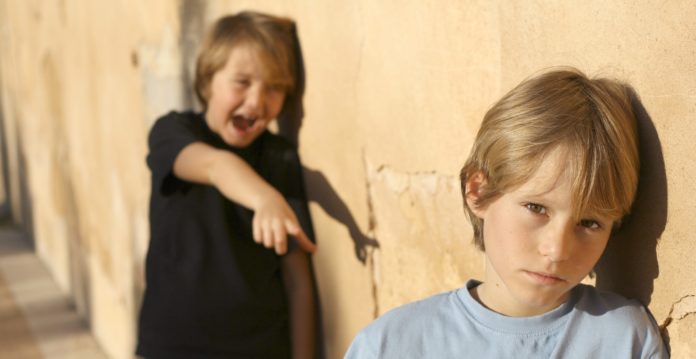
Adding to a growing body of research documenting the long-term consequences of bullying, a new study has found that children who were bullied by their brothers or sisters several times a week or more during early adolescence are twice as likely to report being clinically depressed as young adults.
Sibling bullying also doubled the risk of engaging in self-harm within the previous year compared with those who had not been bullied.
The findings, published in the journal Pediatrics, are the results of the first longitudinal study to investigate possible links between sibling bullying and clinical depression and self-harm in young adults.
The research — a collaborative project conducted by the Universities of Oxford, Warwick, Bristol and UCL — suggests interventions are needed to specifically target a form of bullying which it says, to date, has been largely ignored by academics, policymakers, and clinicians.
“Forms of bullying where victims are shoved around the playground or targeted at work have been well documented,” says lead author Dr. Lucy Bowes, from the Department of Social Policy and Intervention at the University of Oxford. “[H]owever, this study uncovers a largely hidden form of bullying. Victims of sibling bullying are offered little escape as sibling relationships endure throughout development.”
“We are not talking about the sort of teasing that often goes on within families, but incidents that occur several times a week, in which victims are ignored by their brothers or sisters, or are subjected to verbal or physical violence,” she adds.
Siblings who are bullied are twice as likely to suffer from depression, self-harm as adults
The new study investigated sibling bullying among children of women who enrolled in the Avon Longitudinal Study of Parents and Children (ALSPAC) in the 1990s. Nearly 7,000 children, aged 12, completed postal questionnaires in 2003-4 about whether they had experienced any form of sibling bullying and if so, how often it happened.
The same children were followed up at the age of 18 years, so their mental health could be assessed using a validated online questionnaire, known as the Clinical Interview Schedule. The teenagers attended a clinic to fill in the questionnaire, which asked them about their feelings and any recent self-harming behavior.
Of the 3,452 children with information on both sibling bullying and psychiatric outcomes, 1,810 said they had not been bullied by a brother or sister. Of these, 6.4 percent had depression scores in the clinically significant range, 9.3 percent experienced anxiety and 7.6 percent had self-harmed in the previous year.
Of the 786 children who said they had been bullied by a sibling several times a week, clinical depression was reported by 12.3 percent, while 14 percent had self-harmed in the previous year and 16 percent of them reported anxiety.
The link between being bullied by their siblings as a child and later mental health disorders was found to be similar for both boys and girls.
Victims were more likely to be girls than boys, with this form of bullying more common in families where there were three or more children. Older brothers were often the perpetrators. On average, victims reported that sibling bullying had started at the age of eight.
Children who said they had been frequently bullied by siblings were more likely to report increased feelings of anxiety. However, anxiety was not found to be a significant effect after individual and family characteristics had been taken into account, suggesting that factors such as close relationships with parents or other siblings may buffer the effects of sibling bullying for some children.
“Social learning and how to behave with peers starts at home, and when siblings are bullied it can have serious long- term consequences as we found in our study,” says co-author Professor Dieter Wolke, from the Department of Psychology and Division of Mental Health and Wellbeing at the University of Warwick. “It is important that parents set clear rules about what is allowed in conflicts and they should intervene consistently when their children maltreat each other repeatedly.”
The study highlights existing programs in the United States that specifically deal with relationship problems between brothers and sisters more broadly. It suggests these programs should be assessed systematically to see whether they can reduce sibling bullying thereby reducing the potential psychological damage.
“‘Even though we cannot be certain that this relationship is causal, we think it likely that interventions to reduce sibling bullying would improve the mental health in the longer term,” the team concludes.
